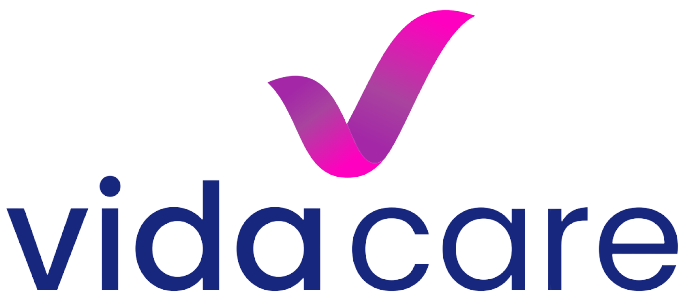As temperatures regularly exceed 26°C and humidity soars, millions of Irish workers are experiencing a phenomenon that contradicts everything we thought we knew about summer wellness.
Recent research from leading medical universities reveals that cortisol levels – your body’s primary stress hormone – spike significantly higher during summer months than winter, with July representing the annual peak of stress hormone activity. This discovery challenges the traditional notion that summer should be our most relaxed season.
The mechanism is both fascinating and alarming. Very hot conditions induce a typical stress response, with secretion of catecholamines and cortisol, creating a cascade of physiological changes that affect every system in your body. Unlike the temporary stress response triggered by work deadlines or personal challenges, heat-induced cortisol elevation can persist 24/7 throughout the summer months.
Ireland’s changing climate patterns have created unique stress challenges. Our bodies evolved for temperate conditions with mild summers, but climate change has introduced sustained heat periods that push our physiological systems beyond their comfort zones.
Research shows that workplace productivity is highest when air temperature is about 22°C, and productivity starts to drop off in the mid-70s. For many Irish workplaces lacking adequate cooling systems, July becomes a month of sustained productivity decline linked directly to heat-induced stress responses.
The Nutritional Demand Surge
Studies demonstrate that elevated cortisol levels, induced by rising temperatures, trigger stress responses that affect cognitive function and productivity at work, school, and home. The effect isn’t subtle – research consistently shows reduced ability to think clearly, quickly, and efficiently when body temperature rises above optimal ranges.
- Decreased decision-making capacity during critical summer project periods
- Impaired memory formation and recall
- Reduced problem-solving abilities precisely when work demands often peak
- Increased susceptibility to errors and oversights
Sleep Disruption and Recovery Failure
Normal cortisol rhythm involves peak levels in early morning, gradually declining throughout the day to reach minimum levels in the evening – supporting healthy sleep patterns. However, sustained heat exposure disrupts this natural rhythm, keeping cortisol elevated when it should be dropping.
Common side effects of heat on mental health include listlessness, changes in sleep patterns such as insomnia, heightened irritability, anger, anxiety, depression, and stress. This creates a vicious cycle where poor sleep quality further elevates daytime cortisol levels, compounding the stress response.
Workplace Stress Amplification
According to 2024 Gallup data, nearly half (49%) of workers report experiencing work-related stress daily, but these statistics don’t account for how heat amplifies existing workplace stressors. July heat doesn’t just add new stress – it magnifies every existing pressure point in your professional life.
Research shows that elevated cortisol levels make individuals more reactive to:
- Workplace conflicts and interpersonal tensions
- Criticism and performance feedback
- Time pressures and deadline stress
- Multitasking demands and cognitive overload
The Dehydration-Stress Connection
One of the most underestimated factors in July stress involves dehydration. Dehydration is common in summer, and many people underestimate how much fluid they need to replace when they’re sweating a lot. Even mild dehydration – affecting up to 75% of people during hot weather – triggers additional cortisol release.
This creates a compounding effect where heat stress and dehydration stress combine, potentially doubling the physiological burden on your adrenal glands. The result is persistent fatigue, irritability, and cognitive fog that many people dismiss as “normal summer lethargy.”
Why Standard Stress Management Falls Short in July
Traditional stress management approaches – meditation, exercise, time management – assume that stress is primarily psychological and can be managed through behavioral changes. However, July heat stress has a significant physiological component that requires different intervention strategies.
The Stress Plus Test: Precision Stress Assessment
VidaCare’s Stress Plus test addresses the measurement gap by providing comprehensive analysis of your body’s stress response systems. At €159, it offers the most cost-effective way to understand exactly how July heat affects your physiological stress levels.
Comprehensive Stress Biomarker Analysis
Cortisol Measurement: The test measures your primary stress hormone levels, revealing whether July heat is triggering excessive cortisol production. This single measurement provides more valuable information about your stress status than any subjective assessment.
DHEA-S Analysis: DHEA-S serves as your body’s stress resilience hormone, counterbalancing cortisol’s effects. The cortisol/DHEA ratio is considered a measure of the aging process, with lower DHEA levels associated with various age-related conditions. Understanding this ratio reveals your body’s capacity to handle sustained stress.
Glucose Regulation Assessment: Chronic stress disrupts blood sugar regulation, contributing to energy crashes and mood instability. The test reveals whether stress is affecting your metabolic stability.
System-Wide Stress Impact Evaluation
Full Blood Count Analysis: Stress affects immune function, with immunosuppressive effects of cortisol increasing the risk of infection. Complete blood analysis reveals whether chronic stress is compromising your immune system.
Kidney Function Assessment: Heat stress places additional burden on kidney function through dehydration risk and increased filtration demands. Comprehensive kidney markers (creatinine, eGFR, urea) show whether your body is handling thermal stress effectively.
Cardiovascular Stress Indicators: The heart works harder during heat stress, and elevated cortisol affects cardiovascular health. Cholesterol panels and inflammatory markers reveal whether stress is impacting heart health.
Liver Function Analysis: Your liver processes stress hormones and manages heat-related metabolic demands. Liver function tests show whether your detoxification systems are keeping up with increased stress hormone production.
Electrolyte and Mineral Balance
July heat stress affects mineral balance through increased sweating and altered kidney function. The test measures:
- Sodium and Potassium – essential for cellular function and blood pressure regulation
- Calcium – critical for muscle function and stress hormone regulation
- Phosphate – important for energy metabolism under stress
At €159, the Stress Plus test represents exceptional value for comprehensive stress assessment. Consider the cost of stress-related health problems:
- Lost productivity during peak earning years
- Medical expenses for stress-related conditions
- Impact on relationships and quality of life
- Long-term health consequences of chronic stress
Early identification and management of stress hormone imbalances provides both immediate relief and long-term health protection.
The Stress Plus test provides the precise information needed to understand and optimize your body’s stress response. Whether you’re managing workplace pressures, family demands, or simply want to feel energized rather than exhausted during summer, cortisol testing reveals exactly what your body needs.
VidaCare has completed over 250,000 health screenings for Irish individuals and families. Our Executive screening represents the most comprehensive health assessment available in Ireland, using the latest diagnostic technology.






